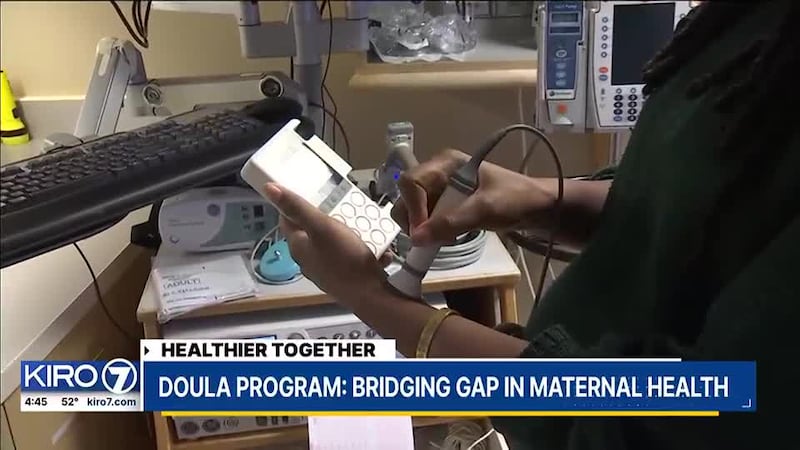A groundbreaking program at the University of Washington could bridge a major gap in maternal health.
The CDC has published research and studies that say Black women often suffer worse birth outcomes compared to other communities.
It’s prompted major concern in those communities, but this new program at UW could bring in professionals, at no cost to the patient, to guide women through pregnancy.
They’re better known as doulas, and they are often a key advocate in helping a woman and family through pregnancy.
“Black people deserve to see themselves in the care teams,” says Nailah Dodd, a nurse midwife at UW.
She is originally from Seattle but moved back to Washington two years ago. She returned to be a nurse midwife because she felt there were probably not enough Black staffers in that role.
She quickly realized how few there were.
“I was the only inpatient working Black midwife, but there are plenty of Black midwives working in our community, but in the inpatient setting, I was it,” Dodd said.
She sat down with KIRO 7 and said that often, minority patients wanted her, called her, and requested her maybe a little too much.
She said she often pulls 24-hour shifts in her work as a midwife.
“And I am 9 months pregnant!” Dodd said.
It’s one reason Dodd is now working on the Health Equity Institute at UW, a partnership between Seattle Children’s and UW to improve health outcomes for marginalized communities.
Dodd showed us in a birthing room how she often does her work and shared how a doula collective could bring more Black faces onto care teams.
UW could soon provide doulas to families for free. As a former doula, Dodd knows the disparity in care for some communities, and that Doulas can bridge the gap.
“It feels amazing to be honest, especially as a pregnant person now -- the legacy of doula work or birth work, the concept of a doula and the profession of doulas is a relatively new concept, but this work is not,” Dodd said.
Dodd is a midwife, the clinician who works in the birthing room much like this one.
She says doulas are often non-medical personnel providing care throughout pregnancy -- physical, emotional and informational support.
Doula care is usually paid by the birthing family to the tune of thousands of dollars, putting it out of reach for many families.
UW’s program, partially funded by the Cambia Health Foundation, is working to create a doula collective where doulas get paid, and families don’t have to pay out of pocket.
Dodd believes that doulas could help lead to better health outcomes for Black and other minority women going through pregnancy and birth.
“It’s important to have doulas present for Black birthing people because we do not see ourselves reflected in our care teams…all across the board, doulas improve outcomes, and so the fact that there has been a gap divide of doulas not present or not getting the funding that’s what we need to fix,” Dodd said.
©2024 Cox Media Group








